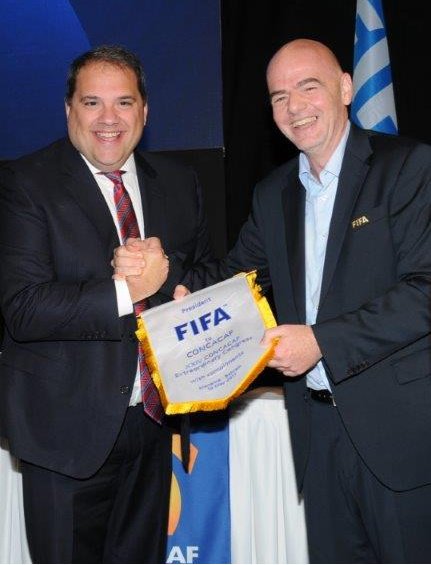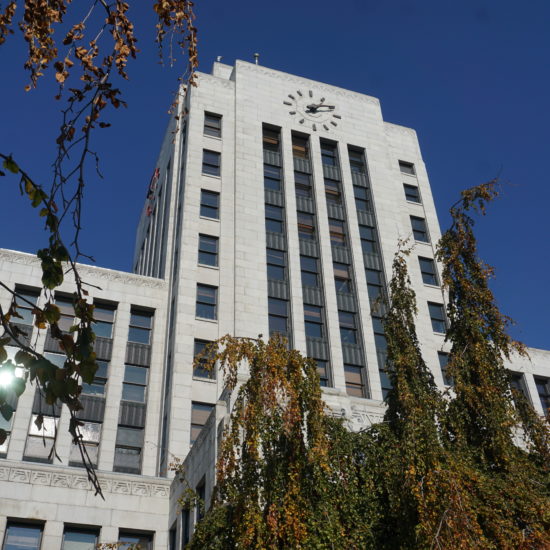
Bob Mackin
A court sheriff handcuffed Bob Birarda and led him out of North Vancouver Provincial Court Nov. 2 to begin the journey to Ford Mountain Correctional Centre in Chilliwack.

Bob Birarda in 2005 (CSA)
The former women’s junior national soccer coach and head coach of the Whitecaps’ women’s team was sentenced to almost 16 months in jail, four months house arrest, four months under 8 p.m. to 6 p.m. curfew and three years probation.
Birarda was charged in late 2020 and pleaded guilty last February for crimes that occurred between 1988 and 2008 — specifically, three counts of sexual assault and one count of touching a young person for sexual purpose. Crown prosecutor Linda Ostry had proposed a two years less-a-day jail sentence, while Birarda’s defence lawyer Bill Smart sought a one-year sentence — eight months in jail and four months of house arrest.
Judge Deanne Gaffar said Birarda exploited a power imbalance and his crimes impacted his victims long after the offences. She said the degree of physical interference was more aggravating for one of the victims, “whose bodily integrity was sexually violated with acts leading up to and including oral sex and sexual intercourse.”
“The stress, emotional and psychological detriment experienced by each victim,” Gaffar said in her ruling. “This pressure caused them to doubt themselves. In some cases, at least two of these teenagers felt compelled to apologize to an adult, Mr. Birarda, for their own reluctance to respond to his overtures. Due to Mr. Birarda’s reactions and interactions with them, it is both troubling and untenable. As adults, they continue to experience anxiety, self-doubt, and, in some cases, depression. Their ability to trust others, particularly men, has been impacted.”

North Vancouver Provincial Court (B.C. Courthouse Libraries)
Gaffar weighed the impact on Birarda’s victims with his acknowledgment of wrongdoing. He had no prior criminal record, followed his bail conditions after arrest, demonstrated profound personal guilt and expressed apology to his victims.
“In addition, his guilty plea has saved court resources. Most importantly, entering guilty pleas means that the victims do not have to testify and relive their trauma. I accept that Mr. Birarda feels tremendous remorse.”
Gaffar said Birarda attended extensive counselling to treat mental health issues, including depression and impostor syndrome. He had been admitted to hospital in 2019 for three or four days due to depression and suicidal thoughts, certified under the Mental Health Act and placed on medication.
She said he had received 30 letters of support, showing respect from people who knew of his charges but spoke highly of him anyway. Some of the letter-writers were players, their parents and fellow coaches.
However, mitigating factors were diminished by his abuse of players’ trust.
Birarda did not speak in court. He already gave an emotional 10-minute statement two months earlier, admitting that his conduct was “selfish, irrational and delusional” and it disgraced the sport he loved.

CSA and Whitecaps
“I’m truly sorry, to each of you for the pain, the upset and the trauma my behaviour has caused you,” Birarda said on Sept. 2. “I cannot find the words to adequately express the depth of my regret, sorrow, shame and even self-loathing I have been filled with for all these years. I have read the victim impact statements, and I feel so horrible for how much pain I have caused each of you.”
Birarda was originally investigated by police after former Whitecap and national team member Ciara McCormack blew the whistle in February 2019 about his return to youth coaching with Coastal FC in South Surrey.
McCormack’s “Horrific Canadian Soccer Story” blog post went viral. A dozen players from the 2008 Whitecaps and national team issued a public statement, alleging “incidents of abuse, manipulation, or inappropriate behaviour” by Birarda in 2007 and 2008.

FIFA VP Montagliani and president Infantino (Twitter)
Birarda coached the Whitecaps women’s team to the 2006 W-League championship. He also headed the under-20 national women’s team and assisted on Canada’s team that played in the quarter-finals of the Beijing 2008 Summer Olympics.
Behind the scenes, Birarda was the subject of sexual harassment and sexual assault complaints. Rather than firing Birarda outright and reporting him to police in October 2008, the Canadian Soccer Association and Whitecaps jointly agreed with Birarda for what they told reporters was a “mutual parting of ways.”
The CSA board in 2008 included Victor Montagliani, who is now a vice-president of FIFA representing the North and Central American and Caribbean zone. Peter Montopoli had joined the CSA as its general secretary in April of 2008. Last year, he moved to the 2026 FIFA World Cup organizing committee as the head of operations for matches in Toronto and Vancouver.
A July 28-released investigation by world-renowned University of Western Ontario sports law professor Richard McLaren found the CSA allowed Birarda to operate with too much power and too little oversight.
Support theBreaker.news for as low as $2 a month on Patreon. Find out how. Click here.











